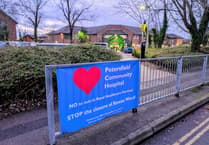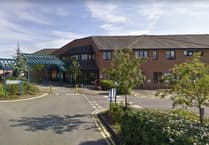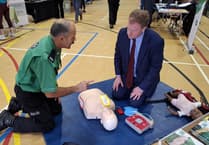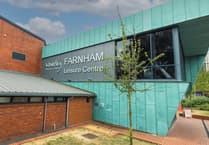HERE we go again… or do we?
That is the thought on everyone’s mind as we wrestle with the new Omicron variant. Here are my thoughts as someone who has been following the pandemic closely through my role as chair of the Health and Social Care Select Committee.
Firstly, to give credit where it is due, the government has acted with commendable speed when it comes to adding at risk countries on to the Red List.
Many people in South West Surrey work in the travel sector and I totally understand how frustrating it is when things seemed to be heading back to normal. Nonetheless, it was the right thing to do.
One of the big lessons from last year is that rapid border controls can make a big difference – but the longer you wait, the less effective they are.
However much we all want to return to international travel, a bigger priority at the moment is avoiding further lockdowns. Acting fast gives us the best chance of doing so.
Whether further measures become necessary is not something we can know at the moment.
It will take two weeks of careful research before we will understand three crucial facts: firstly the extent to which the new variant is more transmissible and therefore likely to replace the Delta variant; secondly whether Omicron evades the vaccines; and thirdly whether, having got through the vaccine defences, it makes you more likely to be seriously ill and needing hospital treatment?
We are all desperate to know the answers to those questions because they will have a direct impact on something that matters to all of us: Christmas.
The good news is we should know well before then and many scientists – as well as the health secretary – remain optimistic that family reunions will get the go ahead.
But in a pandemic you have to make calculations based on what you don’t know as much as what you do – what the late Donald Rumsfeld called ‘known unknowns’.
So the smart approach is to buy time so that when you are able to make a decision you have as many options on the table as possible.
That is what we are now doing with the new measures on masks and travel. It has to be said we did not do this last spring when the virus first arrived, when we delayed border controls and wound down community testing.
The result was an increase in cases that meant locking down was our only option – unlike in South Korea and Taiwan, when sealing borders and rigorous quarantining meant they avoided a lockdown during that first year.
The decisions made by the government in the past week show they have learned the most important lesson – acting fast increases the options you will subsequently have.
But there is another lesson neither our government nor any Western governments seem willing to learn, which is that no one is safe from this virus until we are all safe.
At the moment 60 per cent of the population of higher- income countries have been double jabbed compared to just three per cent of the lowest-income countries. They include a number of the countries put on the Red List last week.
Not a single poorer country has met President Biden’s target of 40 per cent vaccinated by December. In the end it is not their fault, with their limited resources, but ours.
The UK has done more than many with our financial contributions to the Covax programme and sponsorship of the research behind the AZ vaccine which continues to be distributed to developing countries at cost.
But collectively we have not done enough – a moral failure as well as a practical failure.
As we raise our defences against Omicron, that surely is the big lesson we need to learn before the next variant arrives.





Comments
This article has no comments yet. Be the first to leave a comment.